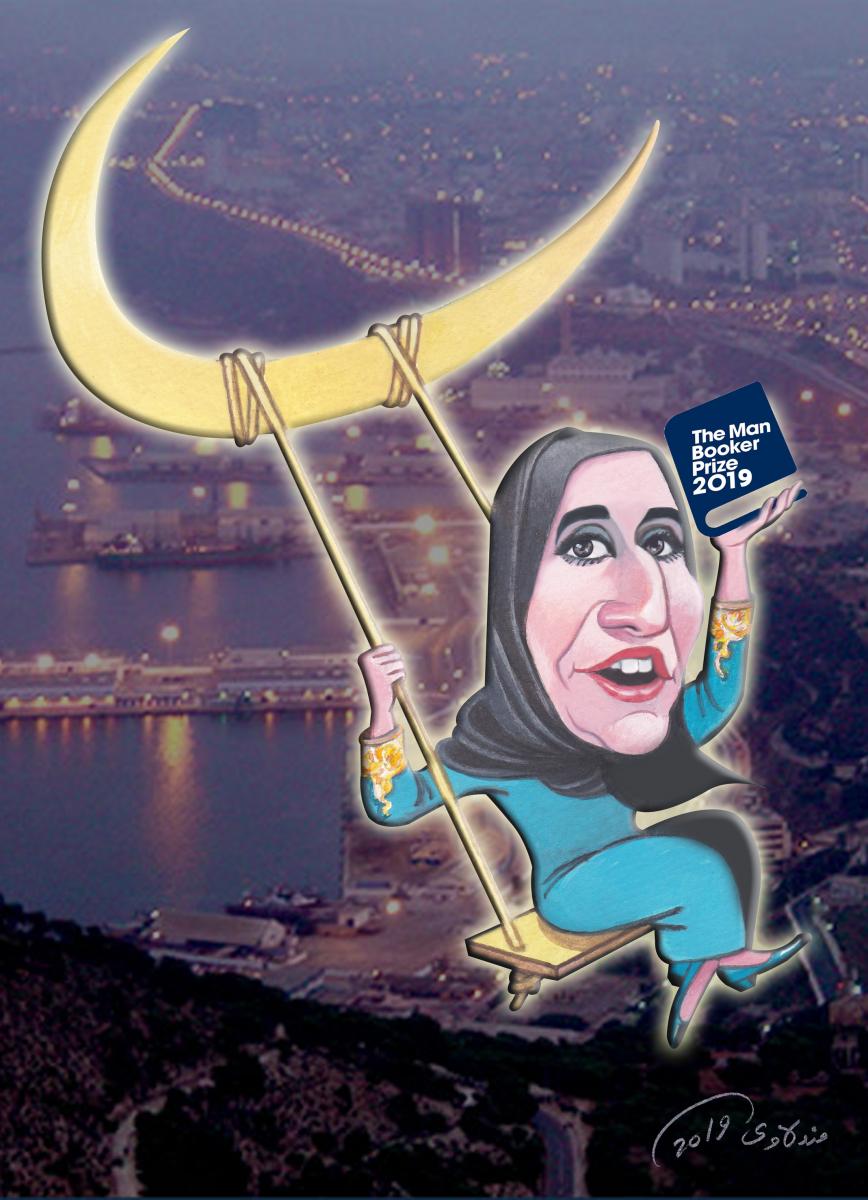
1 - Omani-born Jokha Al-Harthi received her PhD in Classical Arabic Poetry at the University of Edinburgh in 2010 and currently teaches at Sultan Qaboos University in Oman’s capital Muscat. She has published two collections of short fiction, a children’s book, a volume of prose and poetry, three Arabic novel, as well as academic books and articles.
2 - Her work has been published in translation, in English for Banipal Magazine and in German for Lisan Magazine, and in Korean, Serbian and Italian for specialist magazines. She has been shortlisted for the Sheikh Zayed Award for Young Writers and her novel Naranja (2016) won the 2016 Sultan Qaboos Award for Culture, Art and Literature.
3 - In April 2019, Al-Harthi was nominated was shortlisted for the Man Booker International Prize, making history by becoming the first author from the GCC to be in the running for the prestigious award which recognises the writer’s body of work rather than any one title.
4 - In May 2019, she accomplished two more records by winning the award, making he the first Arab-language writer to get the prize and the first Omani author ever to have a novel, Celestial Bodies, translated from Arabic into English. The book, which won the 2010 Best Omani Novel Award, tells the coming-of-age story of three sisters in the Omani village of Al-Awafi confronting its slave-owning past and a complex modern world. Al-Harthi says came up with the idea for the book while studying for her PhD at Edinburgh University when she felt homesick and took to writing about people in Oman. In particular, the story focuses on middle-class Omanis trying to come to terms with major changes to their way of life. "It touches the subject of slavery. I think literature is the best platform to have this dialogue,” she said. Al-Harthi said her win is a victory meant “a window has been opened to Arabic literature.”
5 - In regards to being the first Omani nominee, Jokha said: “I hope this helps international readers discover that Oman has an active and talented writing community who live and work for their art. They take on sacrifices and struggles and find joy in writing, or in art, much the same way as anywhere else. This is something the whole world has in common. Omanis, through their writing, invite others to look at Oman with an open mind and heart. No matter where you are, love, loss, friendship, pain and hope are the same feelings and humanity still has a lot of work to do to believe in this truth.”









